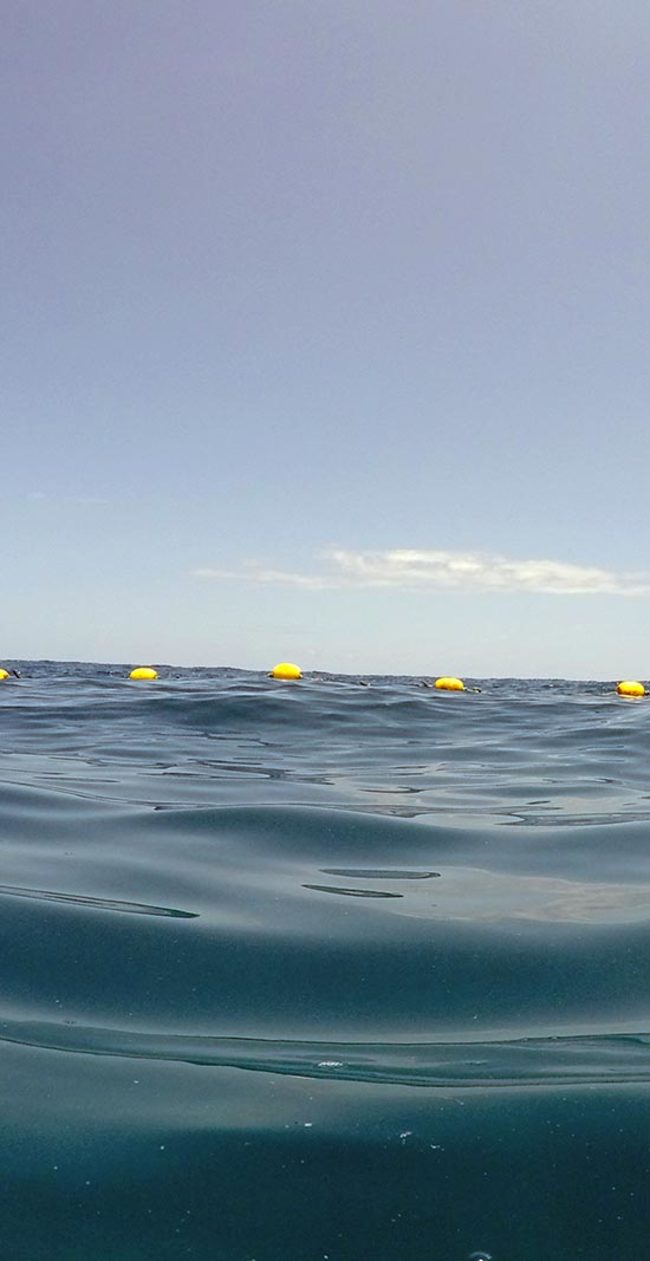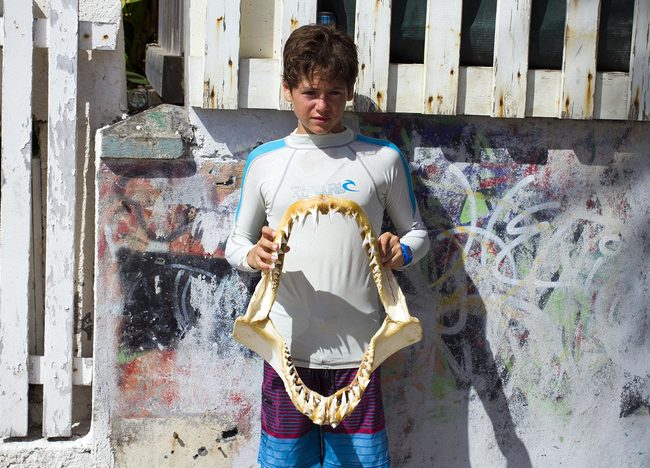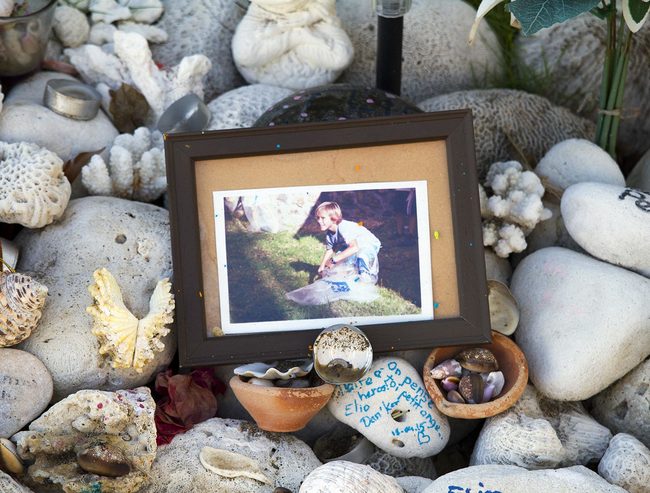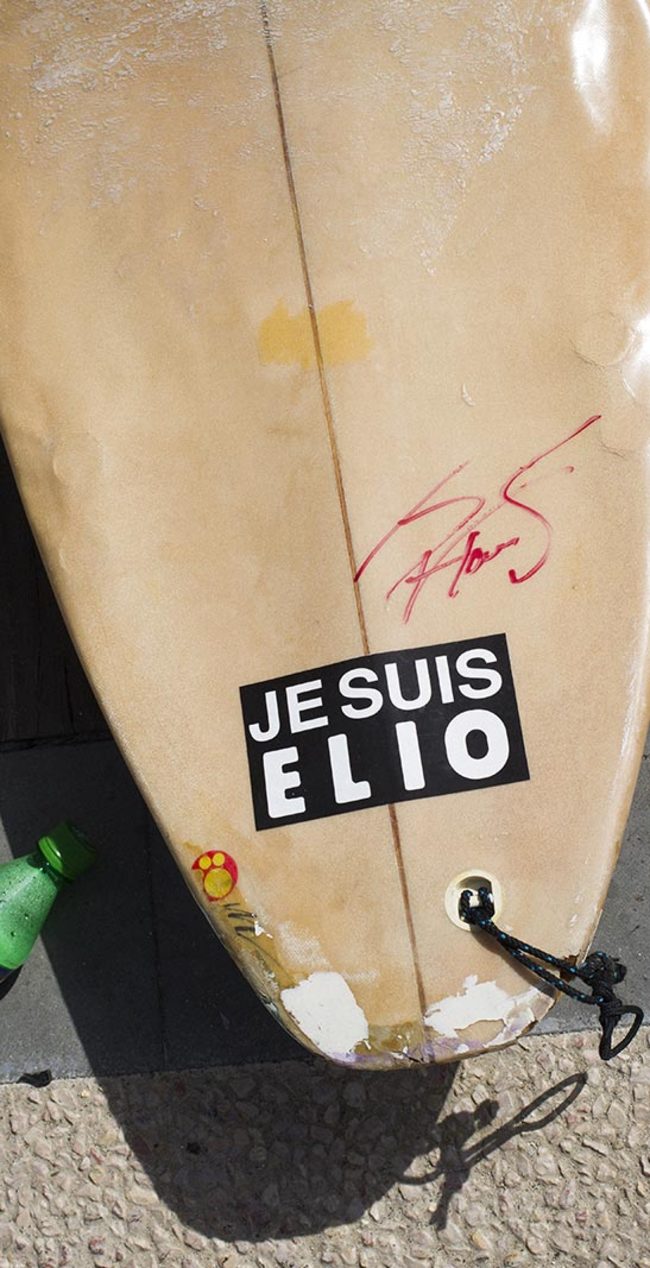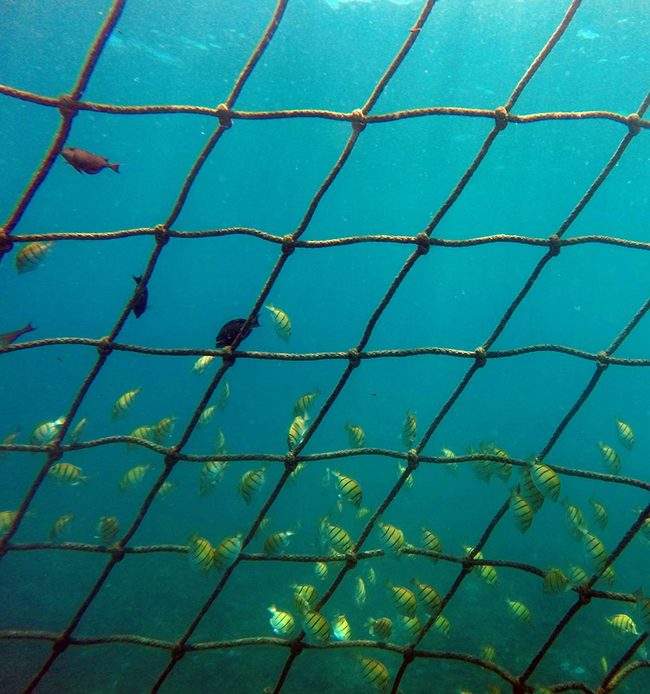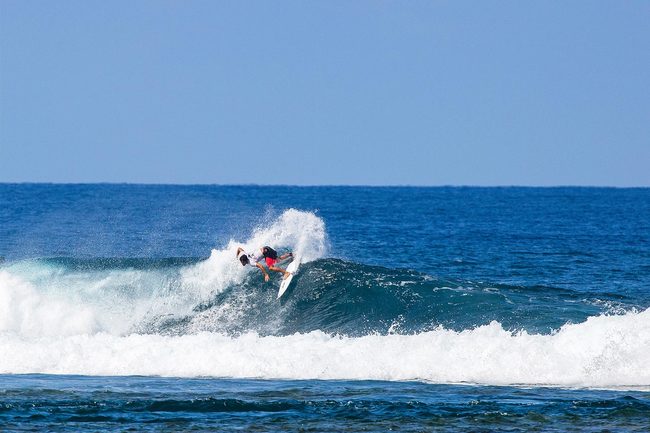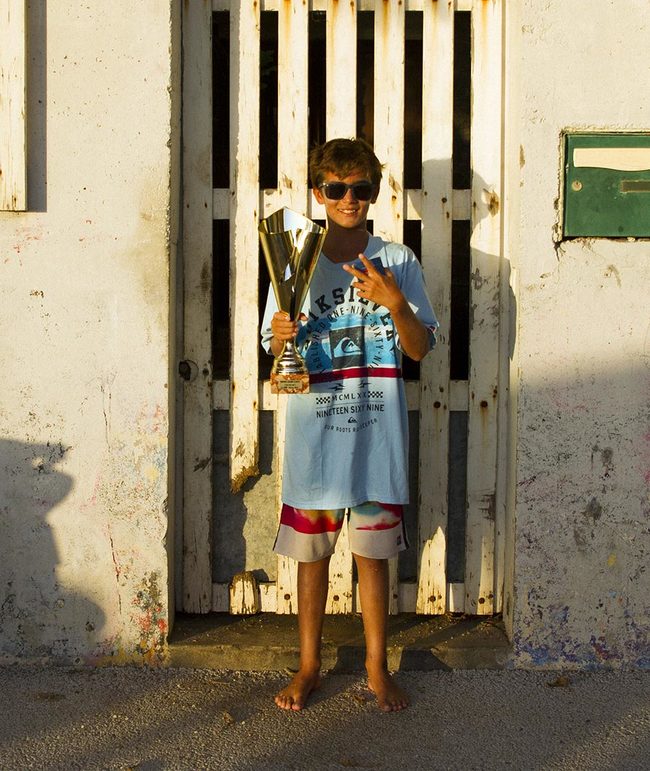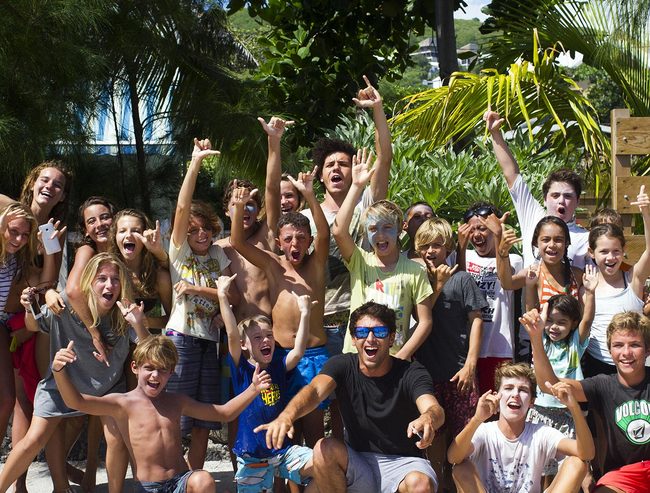
Learn more
Watch video

Radical Times in Reunion Island
Jeremy Flores returns to his homeland on a family mission to protect the beaches that have given him so much.
Watching perfect tropical waves go unridden for days on end will send you mad very quickly, says Reunion Island's Jeremy Flores.
"I remember driving in front of it and it was pumping everyday for 10 days and there was no one out. I didn't even look at it after a while because it was heartbreaking."
Reunion's reputation as a shark hotspot crippled the island. Tourism stopped, surf shops, surf schools, restaurants, and hostels closed down. The local economy began to bottom out. Locals, meanwhile, became too afraid to even set foot in the water, let alone paddle out to one of the reefs and surf."
Jeremy was travelling the world competing on Tour while this was happening. Eventually he had to see it for himself and organised a trip back home. Four people had been killed at this point. Initially he and the locals refused to buy into the panic and continued surfing the ultra-playful lefts of St Leu. But a few days after he left, there was another attack at a nearby spot.
"We were surfing every day there for a week, and he got attacked in the middle of the day in the middle of the crowd,†says Jeremy. “He didn't do anything wrong at all… afterwards, people started realising, people started yelling, this is getting out of control, you know?"
When one of the most promising surfers on the island, 13-year-old Elio Canestri, was killed, it boiled over. A couple dozen sharks were killed with a further plan to cull 90. The actions of the local community in killing and catching and releasing sharks received widespread condemnation from the global green community. Environmentalist groups and activists kicked off a global media campaign against various members of the local community. The controversy shocked Jeremy. The problem was complex and needed a complex solution. Something that went beyond the simplistic idealism of the far left.
Jeremy and his father, Patrick, got involved. Having spent the last 17 years travelling the world, they were able to bring a global perspective to the issue. Through contacts in South Africa they came up with a blueprint for a cutting-edge shark net that would let most sea life through but keep the bull sharks out. Patrick ended up being elected as the member for their local area because of it.
"My dad, he ain't no genius but he's travelled to a lot of places with me, and he sees how the government in South Africa does it. He got elected in our area, which is crazy 'cause my dad was just one guy who loved all the good stuff, all the partying, he’s definitely not a political guy, but he got elected because people had had enough. He had nothing to gain but saving surfing in Reunion."
"That was the best thing I have ever done, It was the proudest moment I’ve ever had. Just to see kids get back in the water and get the rush and go for a heat in 100 percent safety, and their parents on the shore were crying watching their kids back in the water. I was like, oh my god, this is way more a than a sport. It is way of living."










